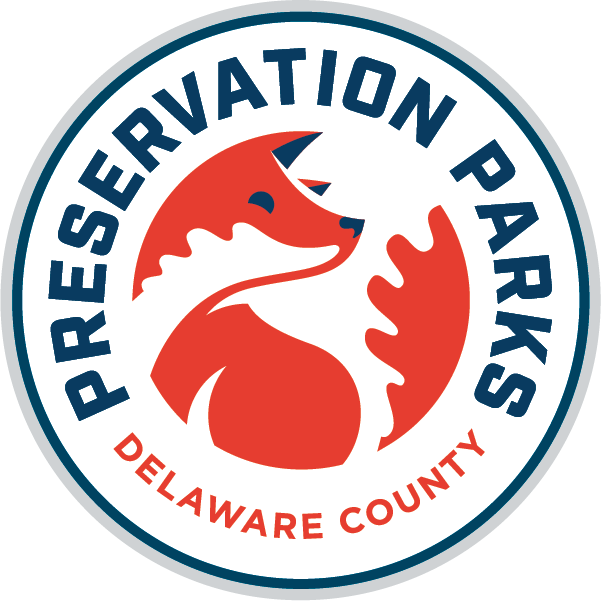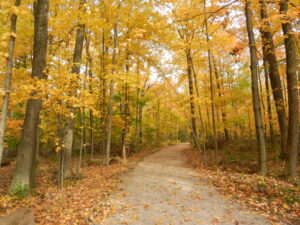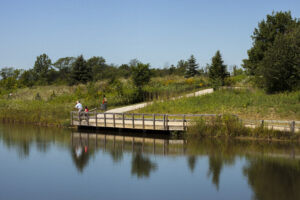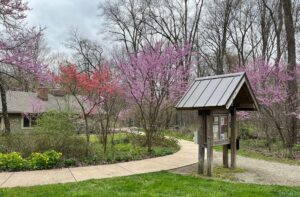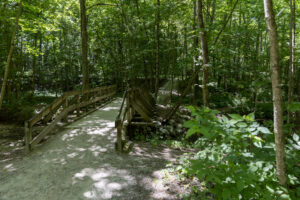By Bodhi Nithyananda, Seasonal Naturalist
On the night of May 10, 2022, an amazing phenomenon happened; 4,782,600 migrating birds flew on the Mississippi and Atlantic Flyways directly over Delaware County, Ohio on their way to summer nesting grounds. BirdCast Migration Dashboard reports the count during the spring and fall migration. But Ohio’s resident and migratory birds are being affected by climate change.
After looking Audubon’s 2019 Climate report, “Survival by degrees: 389 Bird Species on the Brink”, I came across a devastating figure; North America has lost more than 3 billion birds in less than 50 years. Various organizations are studying these numbers including the Cornell Lab of Ornithology, whose mission is the conservation and protection of birds, and the Smithsonian’s Migratory Bird Center (SMBC), whose focus is on “Understanding, conserving, and championing the grand phenomena of bird migration.”
One way we can help birds to survive and thrive, and to continue this grand phenomenon of bird migration, is to switch to Bird Friendly coffee.
According to the Smithsonian Migratory Bird Center, “75 percent of the world’s coffee is farmed with practices that leave no place for birds, or worse, actively destroy forest habitat. When forests disappear, migratory songbirds disappear too.” This translates to more than 2.5 million acres of rainforest just in Central America that has been destroyed to grow coffee.
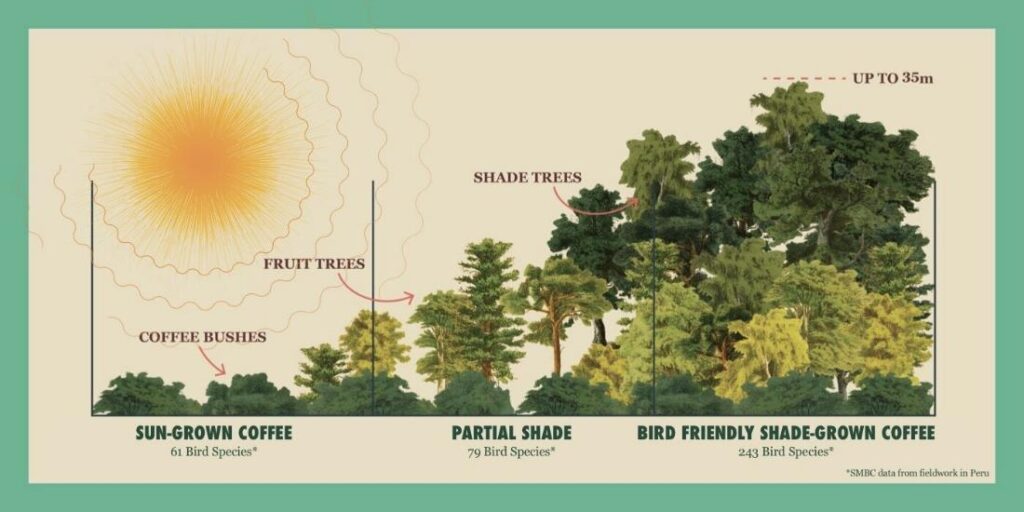
If you look at the graphic image from the Smithsonian, you can compare how most coffee is grown – in monocultures of full sun, versus Bird Friendly shade grown polycultures that are more pest and disease resistant. Full sun does result in higher profits, but slower maturation of the fruit can make coffee taste better and is better for all species.
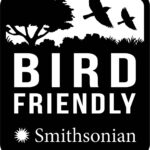
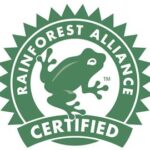
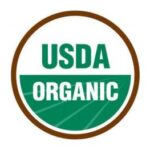
Bird Friendly certified coffee, which meets strict sustainability standards set by SMBC, can help alleviate this loss and destruction with its certification process that includes organically grown and shade grown coffee. Growing organic SMBC coffee is healthier for the ecosystem and is socially sustainable which makes a huge difference for the birds. In general, the Bird Friendly standards are not intended to address labor conditions but there are some economic benefits for the farmers. The premium they get is anywhere from 5 to 12 cents more, above and beyond the organic premium.
The certification labels show up as small rectangular icons on the bag of coffee, such as the black and white birds and a tree for SMBC, the frog label which is Rainforest Alliance or the USDA Organic Certified label. Shade grown is not an actual certification and does not have a label but is currently a popular term that consumers are drawn to. If you are looking for Bird Friendly Coffee, you only need to look for the Bird Friendly label, since the Bird Friendly SMBC certification combines organic certification, shade grown, and strict rain forest standards.
You might be thinking, “Will this one cup of coffee that I am drinking today, or a pound of non-certified coffee beans really make a difference?” It does when you consider both the coffee and the disposable cups. Humans around the world are drinking 2.2 billion cups of coffee daily! All of that comes from farms which are created just for the coffee shrubs, and farmers who do the work. For people concerned about the loss of birds and habitats and the impact on the Flyways of the Americas, a lot of this coffee comes from the Americas. In 2020, according to the OEC, the United States imported $5.43 Billion in coffee, becoming the 1st largest importer of coffee in the world. In terms of rainforest habitats affected, the US imported over a billion dollars of coffee from Central and South American countries where many songbirds overwinter. Worldwide, 23 billion pounds of coffee are produced annually compared to 13,448 pounds of tea.
The central idea behind Bird Friendly certified coffee is that by paying a price premium to growers on rustic coffee plantations, farmers can continue to provide prime bird habitat. Profits from Bird Friendly coffee also pay for research. According to Julie Craves, an Ecologist and past director of the Rouge River Bird Observatory, “Virtually all that we know about the importance of coffee to biodiversity comes from this research which is secured primarily through private funding. Smithsonian pioneered it and continues this work today. That’s what you’re paying extra for when you buy Bird-Friendly coffee. It’s totally worth it.”
We can make a difference. According to the SMBC website, “When the coffee reaches its final destination — where it is roasted, packaged and sold — roasters can use the Smithsonian Bird Friendly seal to market their Bird Friendly coffees to consumers. These pennies-on-the-pound royalty fees fuel the program, as well as the Smithsonian Migratory Bird Center’s cutting-edge ornithological research exploring the connections between birds, coffee and beyond. These remittances paid by forward-looking coffee roasters help to fund scientific work that would otherwise not be possible.”
More than 46 million Americans say they watch birds, and half of all Americans drink coffee. “If every birder in the U.S. committed to drinking Bird Friendly coffee, the market would grow 1,000-fold,” says Bill Wilson, owner of Massachusetts-based Birds & Beans, an online coffee retailer that specializes in selling only Bird-Friendly coffee. We can think of it like a tip jar – where our pennies, or dollars, go for research, saving or restoring habitat, and helping the farmers.
In spite of the good that the Bird friendly label is doing, it IS expensive coffee. With limited resources and so much information about what is harming the planet, how do we choose where to put our money? I find that focusing on what I am passionate about, or what matters to us as individuals is a way to feel powerful instead of overwhelmed. If you would like to try coffee with a Bird Friendly certification, the SMBC website is an excellent resource on where to buy locally and on-line. As of now, Whole Foods and Wild Birds Unlimited sell Bird Friendly Coffee in retail stores in Columbus. On the same website there are almost 30 brands of Bird Friendly coffee online in a wide variety of roasts.
Through photos and glass birds you can also see the effect of climate change on Ohio’s birds in an interactive art exhibit called “For the Love of Birds” on display through Labor Day at Deer Haven Park Visitor Center.
https://nationalzoo.si.edu/migratory-birds/where-buy-bird-friendly-coffee
These websites have curated Bird friendly roasts and blends.
https://www.emeraldology.com/9-best-certified-bird-friendly-and-organic-coffee-roasters/
https://judithtrejo.com/7-of-the-best-bird-friendly-coffee-companies-to-try/
While sipping your favorite morning beverage, enjoy the Grand Phenomenon of Life!
